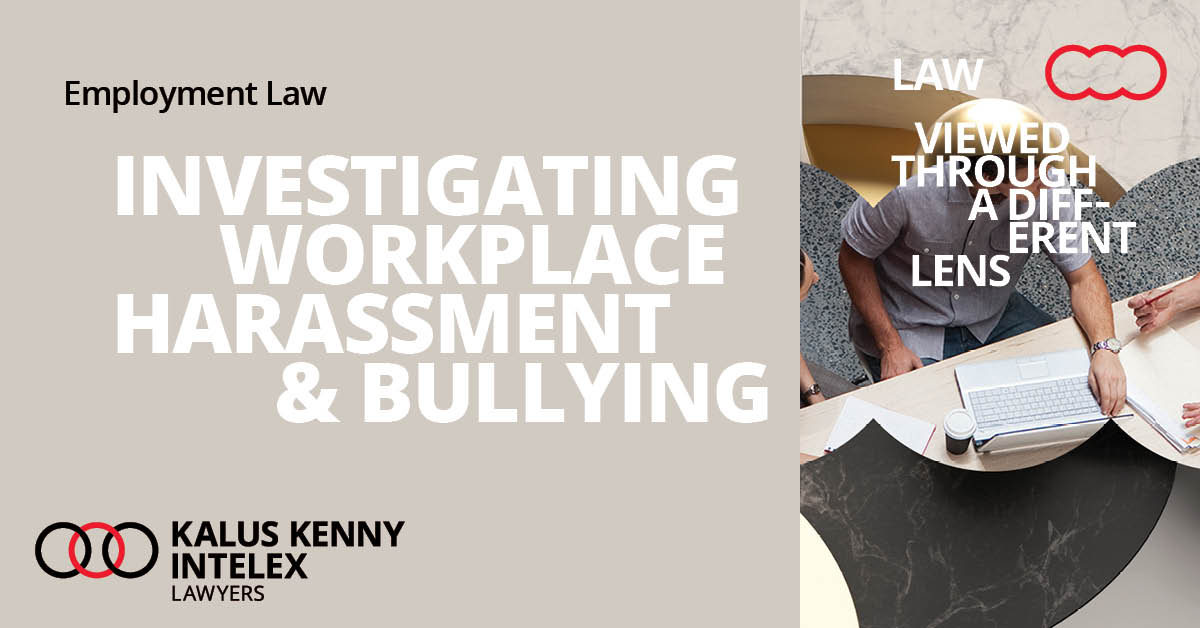An employee has made an allegation that they have been subject to bullying, harassment or discrimination in the workplace. What should an employer do?
Workplace investigations are complex. The key steps are summarised below.
Who should conduct the investigation?
The investigator must have the necessary skills and understanding of the process to conduct the investigation so that the outcome may be considered fair. The investigator must be impartial and independent. Any conflict of interest must be avoided.
Often employers will engage an experienced workplace investigator to ensure that the investigation is well planned, the process is fair, proper records are kept and, importantly, that determinations are based on evidence.
At the outset, the investigator must confirm the scope of the investigation and consider any potential legal claims against the employer. Legal advice should be sought before interviews are conducted in case the employer needs to rely upon legal professional privilege.
Preparation
Prior to commencing interviews, an investigator must consider the scope of the allegations and review relevant documents including the employer’s workplace policies and any applicable modern Awards.
Process
An investigation must be procedurally fair and transparent. Procedural fairness during the investigation is essential to avoid a future finding of unfair dismissal.
The respondent must be:
(a) informed of all allegations against them and the proposed timelines for the investigation;
(b) given the opportunity to respond to the allegations and their response must be considered in any findings or decision;
(c) given the opportunity to have a support person present at the interviews;
(d) informed of the possible disciplinary outcomes.
The investigator must:
- Plan the investigation, including setting a timeline;
- Gather all available evidence;
- Interview participants and explain the process, timing and scope of the investigations and the expectations of the participants;
- Manage health and safety risks;
- Maintain privacy and confidentiality;
- Evaluate the evidence;
- Keep thorough records of the investigation;
- Ensure the investigation is conducted in a timely manner;
- Determine whether the allegations have been proven, based on the available evidence; and
- Prepare a report of the investigation.
Outcome
Once the investigation has concluded, the investigator should prepare a report of the investigation.
Any findings made by the investigator must be made based on all evidence available and should be communicated to the complainant and the respondent.
Given the complexity of the investigation process and the importance of ensuring procedural fairness, we recommend that employers seek legal advice as soon as they receive a workplace complaint.
If you require advice regarding workplace investigations or other aspects of employment law, please contact Heather Richardson.



